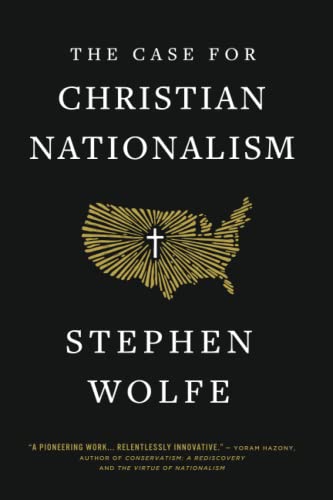1. I didn’t necessarily find every detail of Wolfe’s discussion of prelapsarian life convincing, but such speculations (if guided by Scripture) are entirely appropriate and useful. I agree with Wolfe that civil government is a creation ordinance that would have existed in an unfallen world as a way of organizing and structuring social life (e.g, if there was a symphony in an unfallen world, I believe it would have a conductor). Adam was a king, or at least a king in training at the time of his creation, and thus the seeds of political rule had already been planted. Of course this means that certain forms of hierarchy and social inequality would have existed in an unfallen world (as they will in the world to come). There is no reason to think egalitarianism is the natural state of man. Indeed, egalitarianism is fundamentally unnatural. God’s plan for mankind included a diversity of gifts, callings, and stations totally apart from the entrance of sin into the world. In Genesis 1-2, this is plainly seen in the pre-fall headship of the man over his wife. They are equals in bearing the divine image but unequals in nature and role. It would also have been seen in the rise of civil government (e.g., kings and rulers) in an unfallen world.
2. Some have made an issue of Wolfe including a quotation from Samuel Francis on p. 39. This seems to be overblown considered by itself; whatever one thinks of Francis’ views, citing a single quotation does not suggest complete agreement. (I quote Robert Louis Dabney at times without implying that I agree with everything he ever wrote.) This point is reinforced by the use of quote from neo-Kuyperian Albert Wolters on p. 81, at the beginning of a chapter that will proceed to criticize at least certain strains of neo-Kuyperianism. While I like Wolters’ book Creation Regained, Wolfe is very critical of Kuyperianism here and elsewhere. Again: citing a single quotation does not imply comprehensive agreement with the quoted author. In reality, I am probably closer to Wolters’ Kuyperian view of cultural transformation than Wolfe is (something I might treat in more detail later), but Wolfe’s position is so nuanced that I think many cultural transformationalists can find a lot of common ground with it.
3. All that being said, there are stlll significant problems with Wolfe's view of ethnicity. What does it mean to have a preference for one's own people, as Wolfe repeatedly says? Who are "my people"? Either this proves too much - there is only one nation/race/people since we all come from Adam and Eve -- or if proves nothing at all since most every nation in history had a mix (e.g., ancient Israel coming out of Egypt was a mixed multitude; America has been an ethnic mix from very early on). Further, what if i think of "my people" as the church? Then what?
If Wolfe insists that "my people" must be conceived in a familial, nationalist way, I ask: Who are the common ancestors of America? Americans came from a host of distinct nations. To say we mainly came from white Europeans is cheating since Europe itself is an amalgamation of various people groups, formed and held together by a common faith. Europe as we know it was the product of the Christian religion, not common ancestry, just as America is the product of a common Christian faith.
This does not mean we have to say ancestry is irrelevant to nationhood but it is only one factor of many. If even families can be mixed (e.g., adoption) then certainly nations can be too .
The New Perspective on Paul (which i have written on quite a bit in the past) is actually very helpful here, as it provides a lot of exegetical arguments to refute the kinists and those who are kinist-adjacent
I hope to address the nature/grace issue later. That's a more involved topic than I get to right now.

